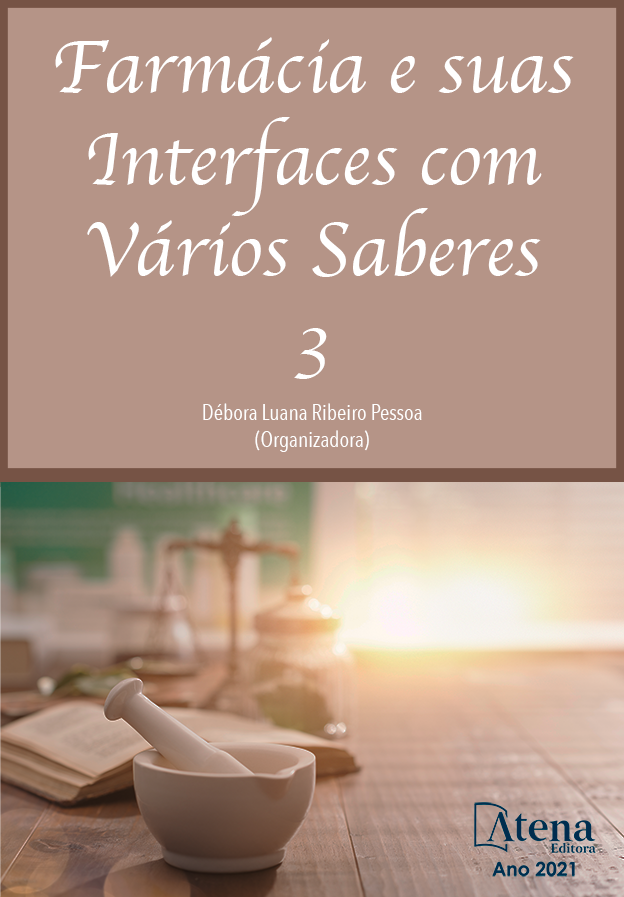
COMPLEXIDADE DA FARMACOTERAPIA EM PACIENTES HIPERTENSOS E/OU DIABÉTICOS
OBJETIVO: A complexidade dos regimes de uso de medicamentos é considerada um dos principais determinantes para a não adesão ao tratamento. O objetivo deste estudo foi quantificar a complexidade da farmacoterapia em pacientes hipertensos e/ou diabéticos usando o Índice de Complexidade da Farmacoterapia (ICFT) e investigar fatores associados. METODOLOGIA: Foi realizado estudo epidemiológico de corte transversal, observacional, descritivo e analítico. A coleta de dados foi realizada no domicílio dos pacientes totalizando 385 entrevistas. Foram coletados dados por meio de um questionário epidemiológico e do instrumento ICFT. RESULTADOS: Do total de entrevistados, 61% referiram hipertensão arterial sistêmica isolada, 10,4% diabetes mellitus isolada e 28,6% as duas doenças associadas , sendo a maioria mulheres, com baixa escolaridade e idade superior a 60 anos. O ICFT médio foi de 15,2±3,4 pontos e esteve estatisticamente correlacionado com o número de medicamentos (p=0,008) e a adesão ao tratamento (p=0,031). CONCLUSÃO: Nenhuma variável sociodemográfica e clínica apresentou associação significativa com o ICFT, apenas foram encontradas essas associações com o número de medicamentos utilizados e a adesão ao tratamento. Apesar do número de medicamentos utilizados pelos pacientes ter forte correlação com o ICFT, é importante considerar que tratamentos com o mesmo número de medicamentos podem ter ICFT diferentes. Além disso, a complexidade da farmacoterapia resulta numa maior dificuldade na adesão ao tratamento.
COMPLEXIDADE DA FARMACOTERAPIA EM PACIENTES HIPERTENSOS E/OU DIABÉTICOS
-
DOI: 10.22533/at.ed.8212112068
-
Palavras-chave: Problemas relacionados a medicamentos, doenças crônicas, adesão ao tratamento
-
Keywords: Drug-associated problems; chronic diseases; treatment adherence
-
Abstract:
OBJECTIVES: The complexity of drug use regimens is considered to be one of the main determinants of nonadherence to treatment. This study aimed to quantify the complexity of pharmacotherapy in hypertensive and/or diabetic patients using Pharmacotherapy Complexity Index (PCI) and to investigate its associated factors. METHODS: A cross-sectional, observational, descriptive and analytical epidemiologic study was performed using a total of 385 interviews at patients' homes. Data were collected based on the answers to a questionnaire and the instrument PCI. RESULTS: Among the total number of interviewees, isolated hypertension was reported by 61%, isolated diabetes mellitus was reported by 10.4%, and both diseases was reported by 28.6%; majority of the patients with both diseases were women, finished low schooling, and were aged >60 years. The mean PCI was 15.2 ± 3.4 points and was significantly correlated with the number of medications (p = 0.008) and adherence to treatment (p = 0.031). CONCLUSIONS: PCI was not significantly associated with any sociodemographic and clinical variables and was only associated with the number of drugs used and adherence to treatment. Although the number of drugs used by the patients had a strong correlation with the PCI, it is important to consider that treatment regimens with the same number of medications may have different PCIs. Also, the complexity of pharmacotherapy resulted in greater difficulty in adherence.
-
Número de páginas: 13
- Amador Alves Bonifácio Neto
- Vanessa Marcon de Oliveira
- Erica Freire de Vasconcelos Pereira
- Cristiane Munaretto Ferreira
- Maria Tereza Ferreira Duenhas Monreal
- Vanessa Terezinha Gubert


